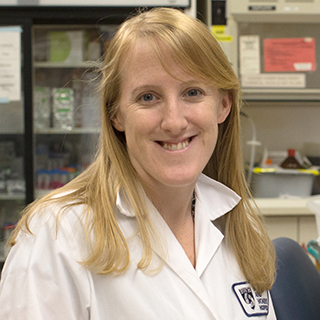Tracy Young-Pearse, PhD, received her undergraduate degree from Skidmore College in her home town of Saratoga Springs, NY. She went on to enter the Biomedical and Biological Sciences program at Harvard Medical School, where she received her PhD in genetics under the guidance of Connie Cepko, PhD. She then completed a postdoctoral fellowship in the Center for Neurologic Diseases at Brigham and Women’s Hospital and Harvard Medical School. Tracy is now an assistant professor of neurology at Harvard Medical School and Brigham and Women’s Hospital, where she runs her laboratory. The long -term goals of the Young-Pearse lab are to understand the in vivo functions of genes identified in neurodegenerative and developmental disorders of the human brain.
"I remember learning about Alzheimer’s disease (AD) as a child, and being terrified that someone in my family might get the disease and not remember me. As I have grown older and learned more about the disease and the available treatments, I have discovered that my fears as a child were not unreasonable. The disease is devastating and incredibly common. Through my work in the lab, trying to understand the mechanisms, I have met many people who suffer from AD and have observed first hand the impact upon their families.
We know so much about the processes involved in this disease, and yet there still is so much more to understand if we are going to stop it. In the past year, there have been some glimmers of hope from trials of new interventions. However, we must never rest in our studies of AD, even if new trials are successful, since not everyone may respond to the new interventions. We want to be ready with new assays that can test who would be most responsive to these new treatments, and develop new therapies that can help those who are not responsive."
